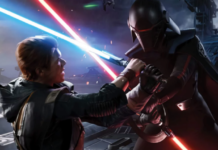There’s been a lot of controversy lately over what constitutes gambling when it comes to loot boxes and other microtransactions in video games. PEGI and ESRB have both said loot boxes aren’t gambling, while the gambling commissions in Belgium and the UK say they are. But aside from the ‘is it/isn’t it’ debate, Blizzard believes that the loot boxes in Overwatch don’t belong in the debate at all.
With Battlefield II and Middle-earth: Shadow of War getting flak for their implementation of microtransactions, it’s a wonder why Overwatch dodges so much criticism while arguably being the game that popularized loot boxes in the first place.
In a recent interview with PCGamesN, Overwatch director Jeff Kaplan dove into what made Overwatch‘s loot boxes work in a less predatorial while many others seem to take advantage of their users.
“There were a couple of core philosophies that were very important to the team when creating our loot box system. One was that it had to be a very player-centric system. As players ourselves we don’t want any sort of power increase in our system. We wanted the system to be purely cosmetic, so that was one of the core philosophies.
The second was that we wanted every item that was available in the loot boxes to be obtainable in some way that didn’t have anything to do with luck, so we [compensated players for duplicates], and did the credit system, and the unlocks. That way, if you ever felt like ‘There was that Junkrat skin that I’ve always really wanted but I don’t seem to ever pull it out of the loot box’, that you had an avenue of obtaining that that wasn’t loot box driven, or random driven.”
To sum it up, the loot boxes in Overwatch were built with players in mind and not their wallets. His second point implies that players have options beyond ‘grind exhaustingly away or just pay to possibly get that skin’. Getting duplicates from a loot box adds to your credits, thus preventing dupes from being a failed gamble. Kaplan goes on to address the importance of listening to player feedback.
“The other reason that our loot box system has been successful so far is we try to listen to our players as much as possible. They’re very vocal when they’re unhappy about things. An example is the first Summer Games event, where you couldn’t get the items for credits, and our players said ‘Hey, that’s not cool, we’d really like to get the items for credits.’ So, as soon as that event ended, we added the ability for the next event. Then, shortly after the Anniversary event, we made it so that duplicates were far rarer in the loot boxes. I can never say that duplicates don’t exist, because we don’t have infinite content, so at some point a duplicate will exist. But we were hearing feedback during the Anniversary event like ‘Hey, these duplicates aren’t really cool, what can you do about it,’ and we made a change.
So, we’re hoping to show players that we play the game too: we’re involved in a dialogue with them, we’re happy to make changes, the system’s cosmetic-only, and you can obtain everything in the loot boxes through other ways. That’s what’s stayed important to us.”
It seems like the answer is ‘options’ and ‘make it cosmetic only’ are the takeaways from Kaplan’s talk. Overwatch was built with loot boxes in mind, as opposed to tacking them on at the end. Beyond that, everything in the loot boxes is obtainable in a reasonable alternative fashion.
Overwatch has been mirrored by many games since its launch. Let’s hope this is another thing developers who insist on microtransactions will copy.







